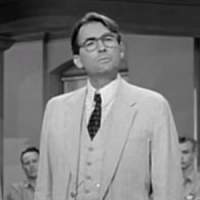- Revenue Cycle Management
- COVID-19
- Reimbursement
- Diabetes Awareness Month
- Risk Management
- Patient Retention
- Staffing
- Medical Economics® 100th Anniversary
- Coding and documentation
- Business of Endocrinology
- Telehealth
- Physicians Financial News
- Cybersecurity
- Cardiovascular Clinical Consult
- Locum Tenens, brought to you by LocumLife®
- Weight Management
- Business of Women's Health
- Practice Efficiency
- Finance and Wealth
- EHRs
- Remote Patient Monitoring
- Sponsored Webinars
- Medical Technology
- Billing and collections
- Acute Pain Management
- Exclusive Content
- Value-based Care
- Business of Pediatrics
- Concierge Medicine 2.0 by Castle Connolly Private Health Partners
- Practice Growth
- Concierge Medicine
- Business of Cardiology
- Implementing the Topcon Ocular Telehealth Platform
- Malpractice
- Influenza
- Sexual Health
- Chronic Conditions
- Technology
- Legal and Policy
- Money
- Opinion
- Vaccines
- Practice Management
- Patient Relations
- Careers
Innocence Meets Evil: What 'To Kill a Mockingbird' Can Teach Us About Healthcare
At its hear, Harper Lee's classic novel was about innocence meeting evil. Healthcare could learn from Scout Finch as it confronts a industry tides that aren't always patient-centered.

"To Kill a Mockingbird" has been called one of the most influential novels of the 20th century and the recent death of its author, Harper Lee, has resulted in a re-evaluation of the significance of the themes of the classic. Fundamentally, the story of Atticus Finch defending a black man, Tom Robinson, as told through the eyes of Scout, Finch's young daughter, is about innocence meeting evil and its consequences.
Medicine seems to be grappling with this recurrent societal problem. What began as a mom and pop industry has transformed into a behemoth controlled, in large part, by a voracious medical-industrial complex that many think seems to be more about satisfying the interests of Wall Street than satisfying those who live on Main Street.
Yet, despite intense cross examination, Big Health continues to profess its innocence.
Those were simpler times. Things where portrayed in black and white, not high definition color or 3-D VR. In the end of the novel, there was some karmic justice. I suspect the same will happen to Sickcare USA but nagging questions will persist well after the novel is published and Spielberg makes the movie adaptation but many will say there is still a lot of work to do.
